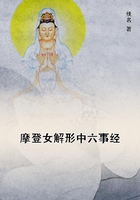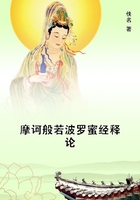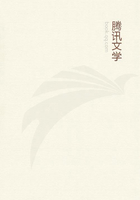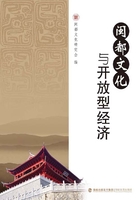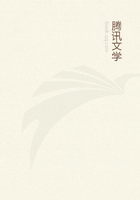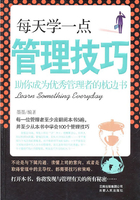All this while, too, the training of the character is in progress --of the temper, the will, and the habits--on which so much of the happiness of human beings in after-life depends. Although man is endowed with a certain self-acting, self-helping power of contributing to his own development, independent of surrounding circumstances, and of reacting upon the life around him, the bias given to his moral character in early life is of immense importance. Place even the highest-minded philosopher in the midst of daily discomfort, immorality, and vileness, and he will insensibly gravitate towards brutality. How much more susceptible is the impressionable and helpless child amidst such surroundings!
It is not possible to rear a kindly nature, sensitive to evil, pure in mind and heart, amidst coarseness, discomfort, and impurity.
Thus homes, which are the nurseries of children who grow up into men and women, will be good or bad according to the power that governs them. Where the spirit of love and duty pervades the home --where head and heart bear rule wisely there--where the daily life is honest and virtuous--where the government is sensible, kind, and loving, then may we expect from such a home an issue of healthy, useful, and happy beings, capable, as they gain the requisite strength, of following the footsteps of their parents, of walking uprightly, governing themselves wisely, and contributing to the welfare of those about them.
On the other hand, if surrounded by ignorance, coarseness, and selfishness, they will unconsciously assume the same character, and grow up to adult years rude, uncultivated, and all the more dangerous to society if placed amidst the manifold temptations of what is called civilised life. "Give your child to be educated by a slave," said an ancient Greek, "and instead of one slave, you will then have two."The child cannot help imitating what he sees. Everything is to him a model--of manner, of gesture, of speech, of habit, of character. "For the child," says Richter, "the most important era of life is that of childhood, when he begins to colour and mould himself by companionship with others. Every new educator effects less than his predecessor; until at last, if we regard all life as an educational institution, a circumnavigator of the world is less influenced by all the nations he has seen than by his nurse." (2)Models are therefore of every importance in moulding the nature of the child; and if we would have fine characters, we must necessarily present before them fine models. Now, the model most constantly before every child's eye is the Mother.
One good mother, said George Herbert, is worth a hundred schoolmasters. In the home she is "loadstone to all hearts, and loadstar to all eyes." Imitation of her is constant--imitation, which Bacon likens to "a globe of precepts." But example is far more than precept. It is instruction in action. It is teaching without words, often exemplifying more than tongue can teach. In the face of bad example, the best of precepts are of but little avail. The example is followed, not the precepts. Indeed, precept at variance with practice is worse than useless, inasmuch as it only serves to teach the most cowardly of vices--hypocrisy.
Even children are judges of consistency, and the lessons of the parent who says one thing and does the opposite, are quickly seen through. The teaching of the friar was not worth much, who preached the virtue of honesty with a stolen goose in his sleeve.
By imitation of acts, the character becomes slowly and imperceptibly, but at length decidedly formed. The several acts may seem in themselves trivial; but so are the continuous acts of daily life. Like snowflakes, they. fall unperceived; each flake added to the pile produces no sensible change, and yet the accumulation of snowflakes makes the avalanche. So do repeated acts, one following another, at length become consolidated in habit, determine the action of the human being for good or for evil, and, in a word, form the character.
It is because the mother, far more than the father, influences the action and conduct of the child, that her good example is of so much greater importance in the home. It is easy to understand how this should be so. The home is the woman's domain--her kingdom, where she exercises entire control. Her power over the little subjects she rules there is absolute. They look up to her for everything. She is the example and model constantly before their eyes, whom they unconsciously observe and imitate.
Cowley, speaking of the influence of early example, and ideas early implanted in the mind, compares them to letters cut in the bark of a young tree, which grow and widen with age. The impressions then made, howsoever slight they may seem, are never effaced. The ideas then implanted in the mind are like seeds dropped into the ground, which lie there and germinate for a time, afterwards springing up in acts and thoughts and habits. Thus the mother lives again in her children. They unconsciously mould themselves after her manner, her speech, her conduct, and her method of life. Her habits become theirs; and her character is visibly repeated in them.
This maternal love is the visible providence of our race. Its influence is constant and universal. It begins with the education of the human being at the out-start of life, and is prolonged by virtue of the powerful influence which every good mother exercises over her children through life. When launched into the world, each to take part in its labours, anxieties, and trials, they still turn to their mother for consolation, if not for counsel, in their time of trouble and difficulty. The pure and good thoughts she has implanted in their minds when children, continue to grow up into good acts, long after she is dead; and when there is nothing but a memory of her left, her children rise up and call her blessed.

